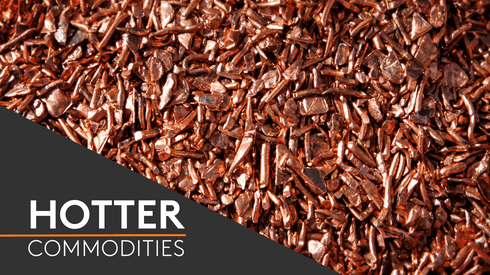The last time the Chinese government bought metal stocks to relieve inventory pressure was more than a decade ago following the financial crisis in 2008. Unlike the centralized purchase in 2008-2009, however, this time the local governments of smelting bases across China will take up the initiatives.
On April 22, the Yunnan government was the first to announce its plan to purchase an annual total of 800,000 tonnes of major non-ferrous metal products across the province, including copper, aluminium, lead, zinc, tin, germanium and indium.
The Yunnan provincial government will invest 1 billion yuan ($141.2 million) to provide interest subsidies for these loans. Companies that stockpile tin, germanium and indium will get a subsidy of 80% on the total loan interest. The interest subsidy will be 60% for copper, electrolytic aluminium, lead and zinc purchases.
Companies can pledge their products to secure bank loans to reserve the metals from market, the document outlined.
“More local governments, such as Hunan and Sichuan, are coming under pressure to incentivize base metal purchases. They shall follow suit to issue similar measures shortly,” a copper industry source said.
A draft of a similar plan from the Gansu government, and seen by Fastmarkets, states that a subsidy will also be provided to enterprises purchasing base metals as commercial reserves.
The government targets the purchase of a total 436,000 tonnes of copper, aluminium, zinc, nickel and cobalt produced in Gansu province from May to December 2020, with part of the interest payment and storage fees potentially waived, although how much is uncertain at this point.
“The aim is to support the sustainability of production plants and relieve the pressure on operations following the virus outbreak,” the document said.
Jinchuan Group, the largest nickel producer in Asia, and JISCO, with an annual capacity of over three million tonnes of aluminium, are both located in Gansu province.
The metals purchased as part of the respective provincial government directives will be reported as commercial reserves, however, not as national reserves, both the document and market sources said.
“Yunnan is China’s major non-ferrous metal smelting base, so this time the provincial government is being ordered to coordinate the procurement, although it has to be carried out as a commercial operation,” the first source said.
“The purchases have to be made through large state-owned companies and private enterprises are not eligible to participate,” another industry source said.
The market’s anticipation of the state’s base metal purchases is already fuelling premium increases in certain markets as of April 27.
Fastmarkets assessed the copper grade A cathode premium, in-whs Shanghai at $83-100 per tonne on Monday April 27, up from $80-95 per tonne on the previous Friday.




